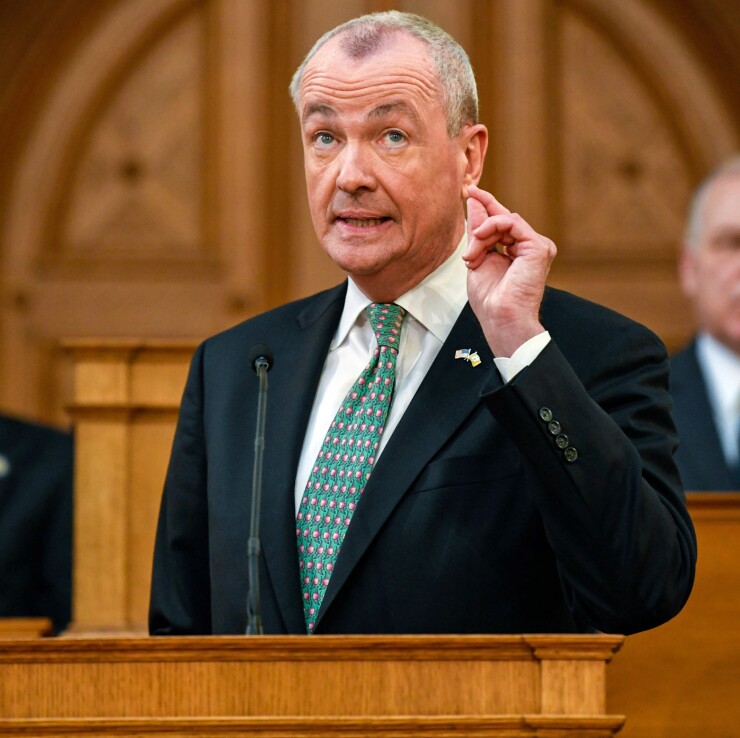New Jersey bought some time with its three-month stopgap budget, deferring significant expenses that push off challenging decisions for lawmakers until they craft a 2021 spending plan.
The $7.6 billion stopgap budget, covers the period from July 1 through Sept. 30, delays nearly $2 billion of scheduled spending into the fiscal year beginning in October from their normal September due date. The deferrals, which include a $951 quarterly pension payment and $461 million school aid payment, sets the state up for a potential liquidity crunch this fall, according to S&P Global Ratings credit analyst David Hitchcock.

“That’s not a long-term strategy, but in the short run it should help them address their cash flow issues,” Hitchcock said. “There are going to have to be some hard decisions made for the 2021 budget.”
New Jersey lawmakers chose to
The three-month budget leaves New Jersey with “minimal” budgetary reserves — just $956 million on Sept. 30, according to Hitchcock. The state is slated to receive $2.4 billion federal CARES Act funding that cannot be used for budget relief, only COVID-19-related expenses.
Regina Egea, president of the conservative-leaning Garden State Initiative, said the Murphy administration needs to implement serious spending cuts or risk an exodus of taxpayers. She noted, the state has more than 1.2 million workers unemployed and the business climate was unattractive prior to the health crisis.
“This gap budget was another opportunity for our state government to address their structural imbalances but instead deferred over $2 billion of cost into the already revenue-stressed fiscal 2021," Egea said. “The question post-pandemic for businesses and taxpayers is will they stay and demand change in how their government operates, or flee to other states that provide greater fiscal responsibility and economic opportunity.”
Murphy’s initial budget proposal would have boosted pension payments by $729 million and brought the system to 80% of the actuarially determined contribution from its current 70% funding level. Whether the state sticks to its commitment to increase pension funding in 2021 would be an important credit factor, since even 80% is still well short of what is needed to keep the system healthy, Hitchcock said. The state’s 39.7% combined pension funded ratio in fiscal 2019 was the second worst in the nation, trailing just Illinois, according to S&P.
The pension burden has driven 12 downgrades to New Jersey general obligation bonds during the past decade, and its rating ranks next to the bottom of U.S. states, ahead of only Illinois. Garden State GOs are rated A-minus by S&P and Fitch Ratings, A3 by Moody’s Investors Service and A by Kroll Bond Rating Agency.
“We’re looking at the state’s ability to have structural balance in the long run,” Hitchcock said. “The three-month budget is a work in progress.”
The liquidity needed in October could be financed through an emergency borrowing plan
New Jersey could also seek to plug its deficit through up to $9 billion of short-term debt permitted through the Federal Reserve's
The three-month budget Murphy signed last week cut $1.2 billion in previously authorized spending. Murphy said the budget would result in a $956 million surplus that includes transferring the state’s entire $421 million rainy day fund into the general fund.
“As we move forward toward the nine-month Fiscal 2021 budget, our choices will have an even bigger impact,” Murphy said in a statement. “We must have the flexibility to borrow essential funds to secure the core services we will rely upon as we emerge from this pandemic, and we need direct assistance from the federal government.”





